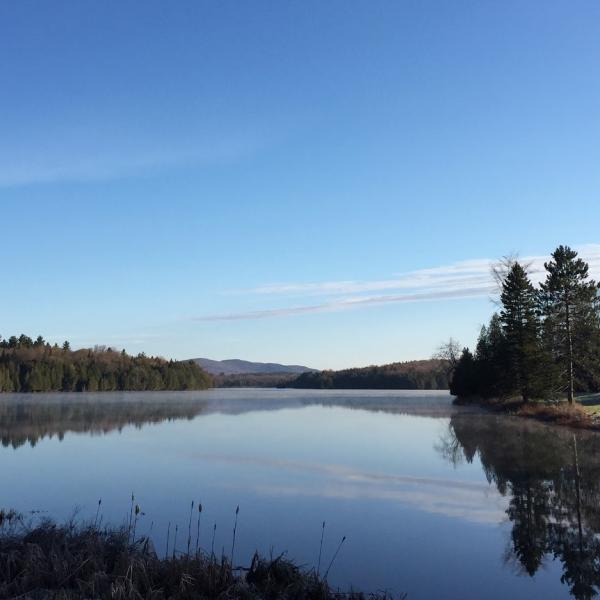
On a sunny evening in May, about 30 environmental practitioners from around Vermont gathered at the Craftsbury Outdoor Center, where the snow had just about melted. As loons called on Big Hosmer Pond, and the worlds of natural resource regulation, conservation, and education clicked on outside, this group spent two days immersed in a concept that is at once head-smackingly simple and deceptively complex: a land ethic.
Aldo Leopold, who coined the term in his 1949 essay of the same name, described a land ethic as a philosophy that “changes the role of Homo sapiens from conqueror of the land community to plain member and citizen of it”. The concept was critical to the formation of many institutions integral to Vermont’s culture today: local Conservation and Planning Commissions, Green Up Day, and learning resources like VTInvasives being just a few examples -- as well as a major guiding force in the agencies and conservation organizations where many of us work.
Leopold called on each person to live by a land ethic and believed this was accessible to everyone. Central to the concept is a process of continual reflection and re-assessment. Leopold famously wrote that “Nothing so important as a land ethic is ever written - it evolves in the minds of a thinking community”. This sentence held the charge for our workshop: as a thinking community of Vermont environmental professionals in 2019, taking time to examine our personal land ethics, while practicing skills to support the evolution of a land ethic in our broader communities. The training was funded by a group of supporting organizations, self-titled as the Vermont Land Ethic Partnership, and a grant from the High Meadows Fund, and guided by trainers from the Aldo Leopold Foundation.
Near the end of his life, Aldo Leopold wrote a series of essays exploring elements of his land ethic. In one of his most famous, “Thinking Like a Mountain”, Leopold looks back to an experience as a young forester in Arizona, around 1909, when he and another forester opened fire on a family of wolves. Approaching the fallen matriarch, he described seeing “a fierce green fire dying in her eyes. I realized then, and have known ever since, that there was something new to me in those eyes, something known only to her and the mountain”. This moment came to shape Leopold’s humility and sense of responsibility toward the natural world, and ownership of his role in it. It also marked the start of his understanding a more subtle ecological balance than he had previously conceived.
In our everyday lives, we don’t need such raw drama to take advantage of the learning process that Leopold began as a young man and continued throughout his life. His model of ‘Observe, Participate, Reflect’ engages the complex thinking needed to develop a land ethic.
Over the next year and beyond, Vermont’s Land Ethic Leaders will bring these land ethic concepts and conversations into their workplaces, local volunteer boards, churches, schools, or other groups. The goal is for all Vermonters, no matter their background or circumstances, to explore and develop a land ethic, and to spark or strengthen partnerships that protect Vermont’s natural resources.
To learn more about the Vermont Land Ethic Partnership, contact Andrea Shortsleeve at andrea.shortsleeve@vermont.gov. To learn more about the Aldo Leopold Foundation and Aldo Leopold’s Land Ethic, check out their website here.

Written by Allaire Diamond, Vermont Land Trust
Photo Credit: Andrea Shortsleeve, VT Fish & Wildlife